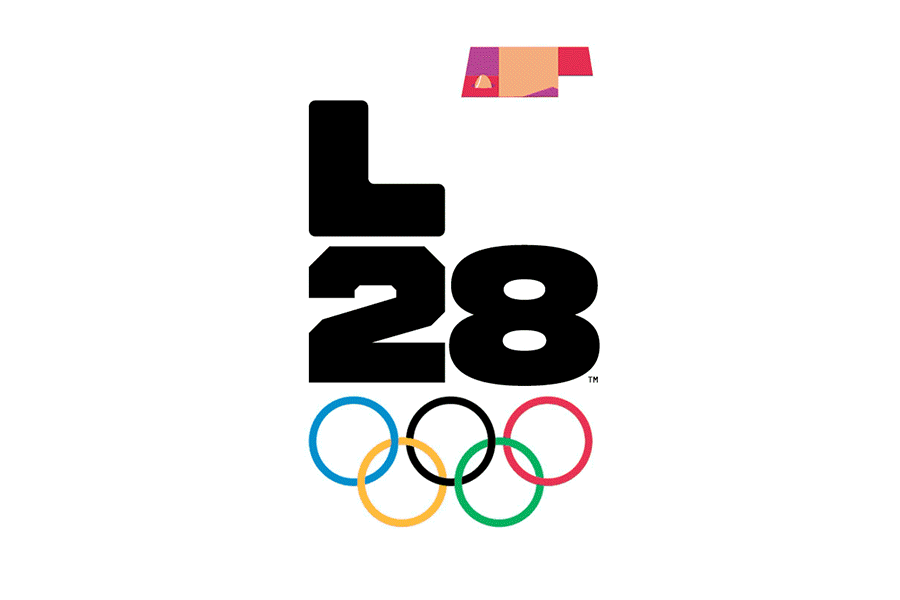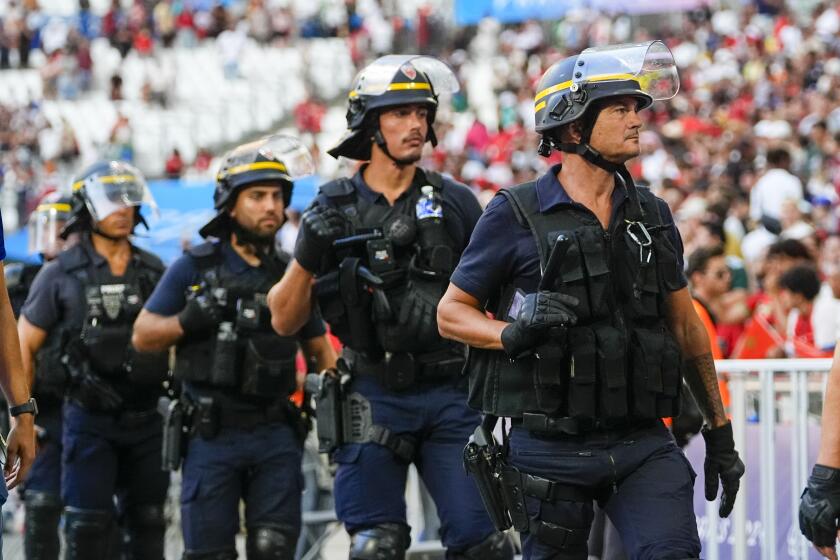Pressure’s on Women Gymnasts Again
The U.S. women’s gymnastics team is favored to win a team gold medal. Courtney Kupets and Carly Patterson are among the favorites to win the individual all-around gold medal.
The men’s team is expected to do well too. Some sort of team medal will not be a surprise and if Paul Hamm, the defending world all-around champion, doesn’t win Olympic gold, it will be a surprise.
But the women figure to be in the spotlight.
“We have lots of expectations on us,” Kupets said at the U.S. nationals in June. “Maybe this team has more expectations than ever. Sometimes that’s a little hard, but I think we have the girls to live up to all that.”
The U.S. women are defending world champions. They won in 2003, even after losing two key participants at the last minute with major injuries. Tasha Schwikert, a member of the 2000 Olympic team, couldn’t make this one. Chellsie Memmel, who stepped into the injury void a year ago and shared a gold medal on bars, didn’t make this team.
“The U.S. could send two teams to Athens and either could come home with the gold,” said Tim Daggett, who competed on the U.S. men’s 1984 Olympic team.
“It’s a very strong team,” said Don Peters, who coached the 1984 U.S. women’s team. “But a strong team means high hopes. Sometimes that’s a burden.”
It won’t be easy being an American pixie in Athens. NBC will flood its coverage with the cuteness factor. There are no stories of failed drug tests, only heartwarming tales of recoveries from injury, of dreams lost and relocated, of last-chance efforts, even a little Hollywood glitz.
Kupets came back from a serious Achilles’ injury suffered at last year’s world championships to win the Olympic trials. Annia Hatch, ancient at 26 by gymnastics standards, defected from Cuba and fulfilled an Olympic dream that was thwarted in 1996 when the Cuban Olympic federation said it couldn’t afford to send Hatch to Atlanta, then almost ended with a devastating knee injury during last year’s worlds. Mohini Bhardwaj, 25, a high-spirited former UCLA star, was helped financially by actress Pamela Anderson.
But the stress of stardom showed on Patterson during the exhausting rounds at the U.S. nationals and the Olympic trials.
Patterson, a bubbly and technically solid 16-year-old, has been tabbed for almost two years by American gymnastics officials as the next Mary Lou Retton, the one-and-only U.S. woman to have won Olympic all-around gold.
But Patterson was subdued in Nashville at nationals and stunned in Anaheim at the trials when she twice fell off the balance beam.
A year ago, Retton had spoken of how much harder it is for female gymnasts today. “I don’t know if I could do what I did [in 1984] now,” she said. “There is so much attention and pressure on the girls. Cameras are in their faces all the time. You’ve got to remember, most of them are still only sophomores or juniors in high school.”
Kerri Strug, a member of the 1996 U.S. team that became the first from this country to win gold, told USA Today during the Anaheim trials that she felt expectations had been raised too high both for Patterson and for the U.S. team.
“I don’t think it’s fair the coaches have built [Patterson] up like this,” Strug said. “And it’s not just Carly. The whole women’s team is supposed to win the gold. Yes, I hope that happens, but what if it doesn’t? You can’t go into the Olympic Games looking at the end result. We’re not talking about a 30-year-old on a basketball court who misses a shot and comes right back and shoots again. We’re talking about a 16-year-old girl on the beam and one slip and it’s over.”
The high profile and high hopes of the 2000 Olympic team backfired. It was considered a huge disappointment when that team finished fourth after the glory of 1996. At the Sydney Games, some of the competitors said they were glad the competition was over. Only one tried to make the 2004 team.
“It wasn’t the greatest experience,” Jamie Dantzscher said after those Games. Two months ago, she said her experience at UCLA had been more satisfying than her Olympic experience.
Bela Karolyi, coach of the 2000 team and a keen observer this time while his wife, Marta, does the coaching, says things are different and better than four years ago, that the four-year process of selecting this team has provided tougher, better-tested athletes.
Since 2000, selected competitors have traveled to the Karolyi ranch outside Houston seven or eight times a year for evaluation. After the nationals and Olympic trials, 13 of them had to go back to the ranch for strenuous and secret tests and competitions.
And then those 13 girls had to sit on bleachers while six were selected as 2004 Olympians on live, national television. “I think the pressure to make this team will be harder than anything we’ll have in Athens,” Kupets said in Nashville.
From the looks on the faces of those who made the team and those who didn’t on that live telecast, she might have been right.
More to Read
Go beyond the scoreboard
Get the latest on L.A.'s teams in the daily Sports Report newsletter.
You may occasionally receive promotional content from the Los Angeles Times.






